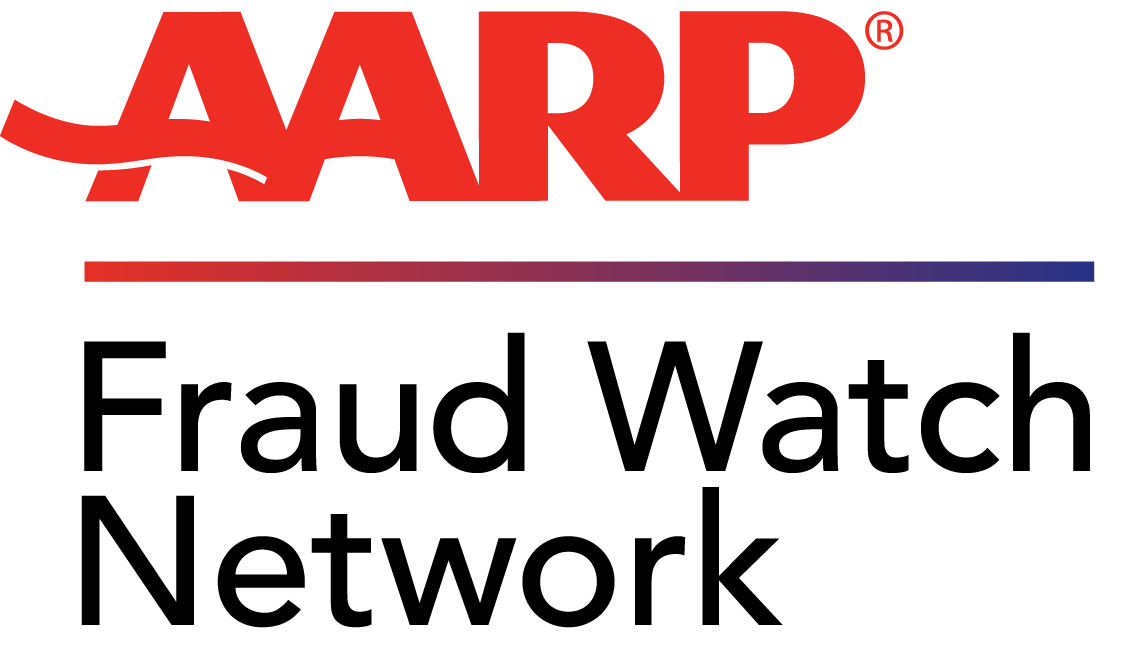AARP Hearing Center

BACKGROUND:
Did you know that someone’s identity gets stolen every two seconds? The AARP Fraud Watch Network provides you with tips and resources to help you spot and avoid identity theft and fraud so you can protect yourself and your family. Our watchdog alerts will keep you up to date on con artists’ latest tricks. It’s free of charge for everyone: AARP members, non-members, and people of all ages.
The AARP Fraud Watch Network is:
- An Educator: Get real-time alerts about the latest scams, tips on how to spot them, and the inside scoop on how con artists think so you can outsmart them before they strike.
- A Watchdog: Our nationwide scam tracking map gives you access to a network of people who've spotted scams and the opportunity to pass along your own experiences, so together we can beat con artists at their own game.
- A Resource: Get connected to a real live person trained in how to avoid fraud and advise you if you or a loved one has been scammed by calling our fraud hotline or attending a forum in your community.
- Free for Everyone: Anyone, of any age, can access our resources at no cost.
SCAM ALERT #1: IRS SCAM
Tax time is here again and so are the IRS impostors! Scammers posing as IRS agents or Treasury Department officials are continuing their deceptive ways. Know that the IRS will first contact you through the mail if you owe taxes. If you receive a phone call or suspicious email or text from the IRS, chances are it’s a scammer posing as an IRS agent. If you receive a scam call, hang up immediately and report the call to the IRS at 800-366-4484 or www.tigta.gov. If you receive an email, forward it to the IRS at phishing@irs.gov, and then delete it.
SCAM ALERT #2: TAX IDENTITY THEFT
Scammers take full advantage of opportunities during tax filing season to make a fast buck. They commit tax identity theft by filing a phony tax return using victims’ personal information to get a refund. To protect yourself against this scam, file your return as early as possible, use a secure Internet connection if you file electronically, or mail your tax return directly from the post office.
SCAM ALERT #3: TRAVEL DEAL SCAMS
Are you looking to make a get-away as spring arrives? Know that scam artists are out there looking to take advantage of deal-seeking travelers. Be leery of “free vacation” offers -- there is often a catch, such as taxes and fees, mandatory presentations or add-ons. Stick to trusted sites if booking travel online, and never pay a deposit or other rental fees by wire transfer. Watch out for unsolicited calls, texts or emails offering too-good-to-be-true deals. Research businesses before committing money to a trip.
SCAM ALERT #4: DIALING SCAMS
When making a phone call to an organization you know and trust, have you ever been greeted by an automatic recording that congratulates you for being selected to win a free prize or take a survey? We know to be suspicious of unwanted calls from scammers who claim we’ve won something, but what about when we make the call ourselves? Unfortunately, scammers purchase series’ of phone numbers that closely resemble the phone numbers of legitimate businesses. Scammers use these numbers to make people think they’ve reached the organization they were intending to, when in fact they’ve reached a scammer. Case in point -- scammers currently own two numbers close to AARP’s toll-free number. To reach AARP, dial 1-888-687-2277.
Never provide your financial information to someone who claims you’ve qualified for a “free” product, service or prize. If you encounter this situation, hang up the phone, check the number you intended to dial, and try dialing again. Always double-check the area code and full phone number before you dial, as one slip of the finger can result in a costly experience.
Be a fraud fighter! If you can spot a scam, you can stop a scam. Report scams to local law enforcement. Contact the AARP Fraud Watch Network at www.aarp.org/fraudwatchnetwork for more information on fraud prevention.































































